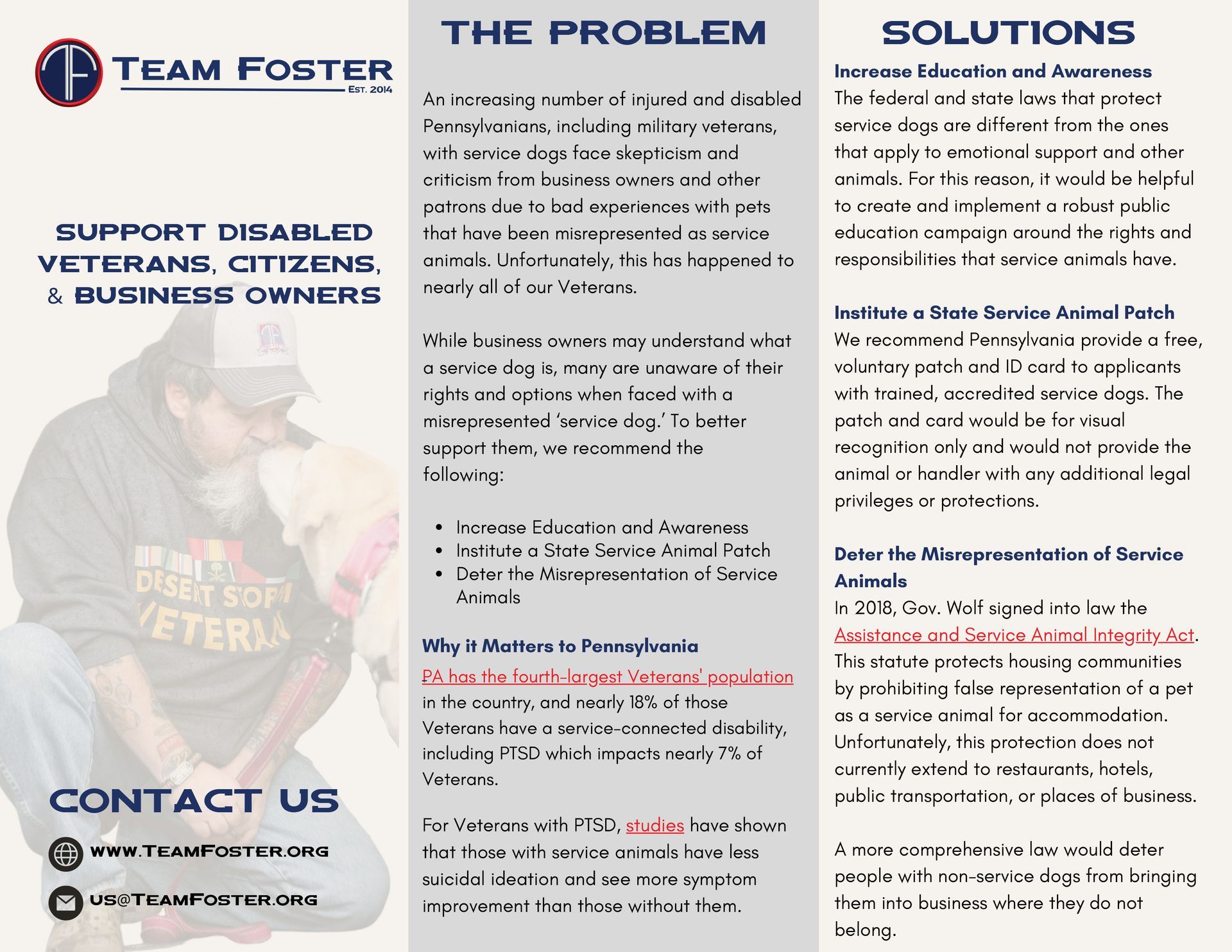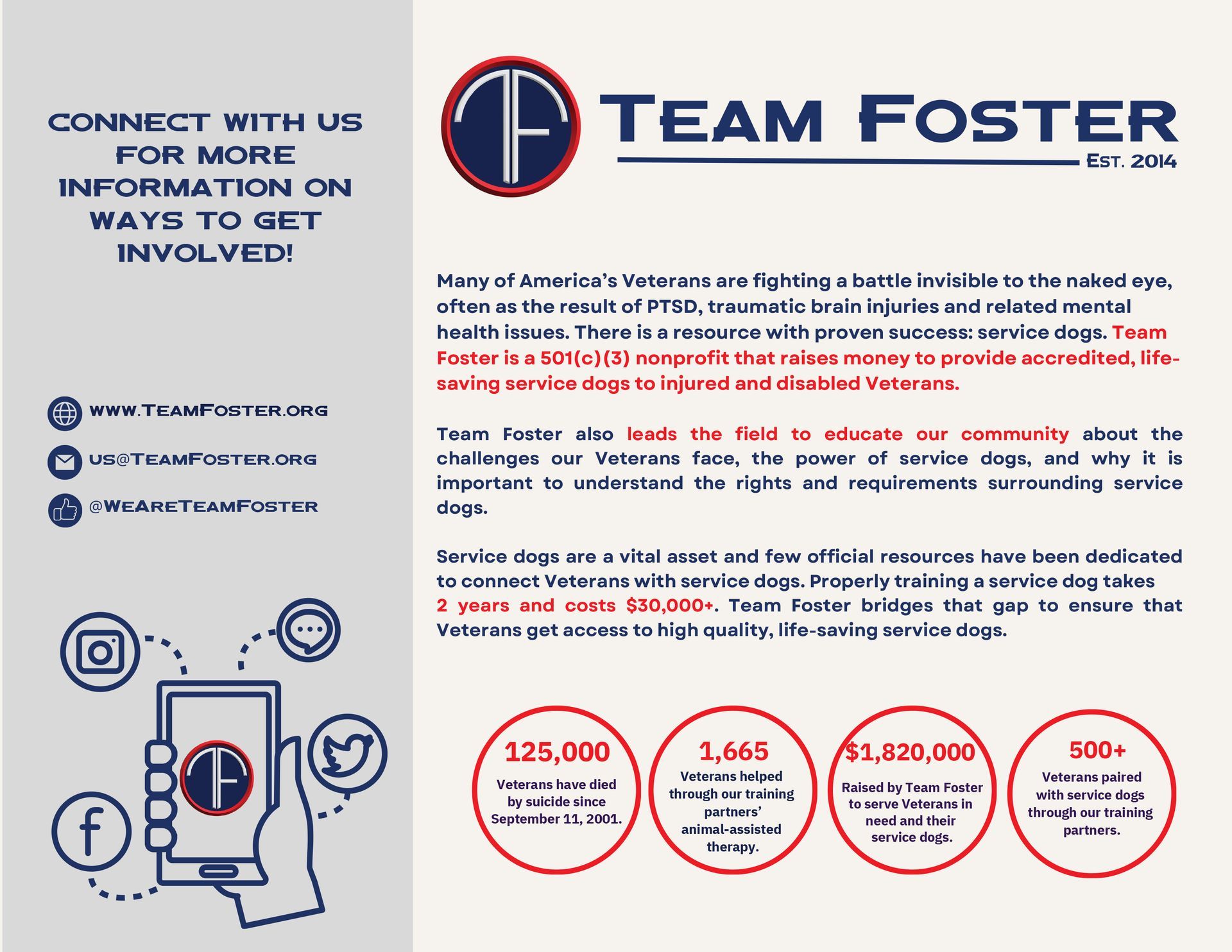
Veteran Services
Service Dogs for Veterans
As a Veteran, no one deserves help and support more than you do. A highly trained service dog can make a life-changing difference—offering independence, stability, and companionship. You’ve served our country, now let us serve you. Contact us to learn more about how to get paired with a service dog. You are not alone, and help is here for you now.
Veteran Support System
At Team Foster, we’re committed to creating a supportive and inclusive space where Veterans feel seen, valued, and connected. Whether it's through events, service dog support, or community outreach, our mission is to ensure no Veteran fights alone. Join the conversation and stay connected by following our Paws & Patriots Facebook Page - a place for updates, inspiration, and community support.
Team Foster trusted referral sources
Team Foster works closely with trusted referral sources to ensure Veterans in need are connected with accredited service dog programs. These partnerships help us identify and support those who will benefit most from a life-saving service dog. In addition to service dog placement, we also offer access to a network of trusted mental health resources and programs, such as:
- America's Vet Dogs
- Warrior Canine Connection
- Susquehanna Service Dogs
- Fort Freedom
- Four Block
- The VA
- Various VFW Posts
Mission Based Trauma Recovery
Warrior Canine Connection utilizes a Mission Based Trauma Recovery model to help Warriors recovering from the stress of combat reconnect with their families, communities, and life.
By interacting with the dogs as they move from puppyhood to training to adult service dogs, Warrior Trainers benefit from a physiological and psychological animal-human connection. As a result of their efforts, Veterans with disabilities receive the finest in trained service dogs.
Interested in learning how you can make a difference in the lives of veterans near you? Reach out to our staff at us@TeamFoster.org.

